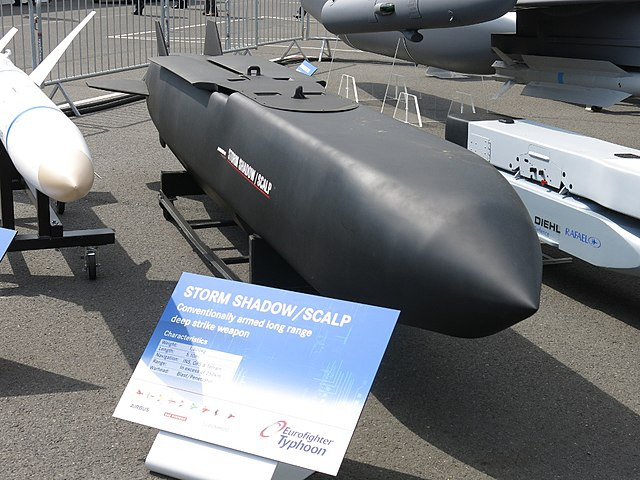Ukraine has fired British-supplied Storm Shadow cruise missiles into Russia's Kursk region, escalating the use of Western weaponry in its ongoing conflict with Moscow. The strikes, widely reported by Russian war correspondents and confirmed by sources speaking on condition of anonymity, follow the use of U.S.-made ATACMS missiles against Russian territory a day earlier.
The Storm Shadow missiles, which boast a range exceeding 250 kilometers, were deployed to target Russian military facilities. Footage shared on Russian Telegram channels purportedly captured the sounds of multiple explosions, accompanied by images of black smoke rising near residential areas in Kursk. Pro-Russian accounts, such as the Two Majors Telegram channel, claimed that up to 12 missiles were launched, with images of debris showing the name "Storm Shadow" clearly visible.
The British government has not commented on the reports. Downing Street has maintained its policy of not discussing operational matters related to Ukraine's use of Western weapons. However, the strikes represent a significant policy shift, as the Storm Shadows were previously approved for use only within Ukrainian territory. Kyiv has long sought Western approval to use advanced weapons for targeting Russian infrastructure, arguing that such measures are critical to its defense.
The U.S. decision to authorize ATACMS missiles earlier this week drew sharp rebuke from Moscow. Russian President Vladimir Putin responded by revising his country's nuclear doctrine to lower the threshold for deploying nuclear weapons. Kremlin officials described the missile authorization as a provocation, while Washington dismissed the rhetoric as unwarranted. The State Department emphasized that there was no need to adjust the U.S. nuclear posture despite Russia's response.
The escalation comes amid significant developments on the battlefield. Reports indicate that Ukraine is leveraging its newly acquired weapons to reinforce positions in the Kursk region, where it seized a strip of Russian territory in August. While military analysts caution that these weapons alone are unlikely to be decisive, they enhance Kyiv's ability to disrupt Russian supply lines and logistics.
Meanwhile, Western embassies in Kyiv, including those of the U.S., Italy, and Greece, temporarily closed on Wednesday, citing the threat of significant air attacks. The U.S. Embassy announced its closure "out of an abundance of caution," though Ukrainian military officials later dismissed the threat as psychological warfare intended to create panic.
The Kremlin has warned that NATO countries facilitating Ukrainian strikes deep into Russian territory could face retaliation. Sergei Naryshkin, Russia's foreign intelligence chief, stated that Moscow views such actions as direct provocations.
The war, now in its 1,000th day, continues to draw global concern. Western officials, including British Defence Secretary John Healey, have underscored their commitment to Ukraine despite escalating tensions. The conflict's trajectory remains uncertain as Kyiv capitalizes on Western military support while Moscow attempts to solidify its positions amid increasing international scrutiny.




